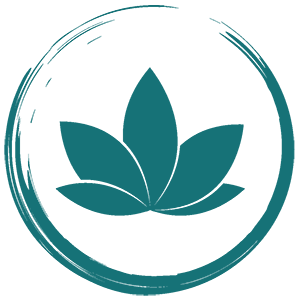FAQs
What is trauma informed care?
Most of us have experienced a trauma of some form in our lives. It may have been from a single event, a series of events or a chronic condition (long-term illness; ongoing lack of safety in the environment; stress and pressure from self or others; social, cultural, or racial discrimination; intergenerational traumas).
Trauma can bring out feelings of helplessness and lack of control and power. It can have significant negative consequences on our future health and well-being.
When trauma occurs, it can affect our sense of self, sense of others and beliefs about the world. Trauma informed care understands and considers the effects of trauma and promotes environments for healing and recovery.
One of Lisa’s specialties is health and well-being issues related to acute and chronic traumatic experiences. She utilizes the principles of trauma informed care in all her work.
The six principles of trauma informed care are:
- maintaining an environment of safety and respect
- trustworthiness and transparency
- cultural humility and responsiveness
- compassion and consistency
- collaboration and empowerment
- resilience and recovery
How does acupuncture approach trauma?
Trauma occurs when a person experiences too much too fast or for too long. Trauma is not defined by the event, but by how the body responds to it. Long after danger has passed, the nervous system may continue to respond as if the trauma is still happening. This pattern then gets locked into the body.
Since trauma is a physically-based reaction to a situation, to regulate trauma one needs to re-regulate the physiology.
One of Chinese medicine’s core beliefs is that health occurs when a state of equilibrium and balance exist in the body. Acupuncture is a gentle and effective way to rebalance the nervous system. It can help to restore a deeper sense of safety and resilience and increase the capacity for self-awareness and healing.
How do emotional intelligence practices approach trauma?
The body and mind commonly cope with trauma by blocking feelings and memories. While this can be an effective coping mechanism in the short term, without memory of the trauma, it is difficult to move forward into the present moment and seek resolution.
Emotional intelligence provides the skill set to help access our feelings. Understanding our deepest feelings is a pathway towards understanding why we react to certain situations the way we do. Knowledge is power, and clarity gives us options and choices for change.
Classical Chinese medicine has a saying: “When trauma happens, the qi (vital life energy) leaves. When awareness happens, the qi returns to the body and the spirit can settle.”
What is craniosacral therapy?
Biodynamic Craniosacral Therapy is a gentle, non-invasive, touch therapy that supports nervous system regulation and allows for the resolution of conditions resulting from stress and trauma.
Practitioners are trained to use acute perception skills to sense and support subtle physiological changes in body fluids and tissues in and around the central nervous system. Craniosacral therapy gently enhances the body’s natural capacities for health and relaxation. Treatment involves light touch on feet, head, sacrum or other specific areas of the body that may benefit from increased circulation The process is subtle but powerful, as well as safe and relaxing.
Potential benefits:
- increases energy and vitality
- relieves stress and anxiety
- releases body tension
- quiets the mind
- enhances health and well-being
Acupuncture and craniosacral techniques are gentle and supportive treatment modalities. With the patient’s permission, Lisa may offer craniosacral touch during an acupuncture session in order to support an overall relaxation response and inner healing potential.
For more information contact the Biodynamic Craniosacral Therapy Association of North America.
What is Qi Gong?
Qi Gong (pronounced chee-gong) is an ancient Chinese exercise that involves conscious breathing and movements. Qi corresponds to vital energy or life force and Gong means cultivation or mastery.
There are various styles of Qi Gong depending on the teacher and the school of thought behind the practice. Most Qi Gong is based on forms and movements found in nature.
Lisa teaches very slow and simple movements that bring focus and intention to the breath and the body. These simple movements can be practiced sitting or standing and are safe and suitable for everyone.
Benefits of these simple exercises include:
- improved balance and mobility
- increased muscle strength and flexibility
- deeper breathing
- lowered stress and anxiety
- increased clarity and overall well being

